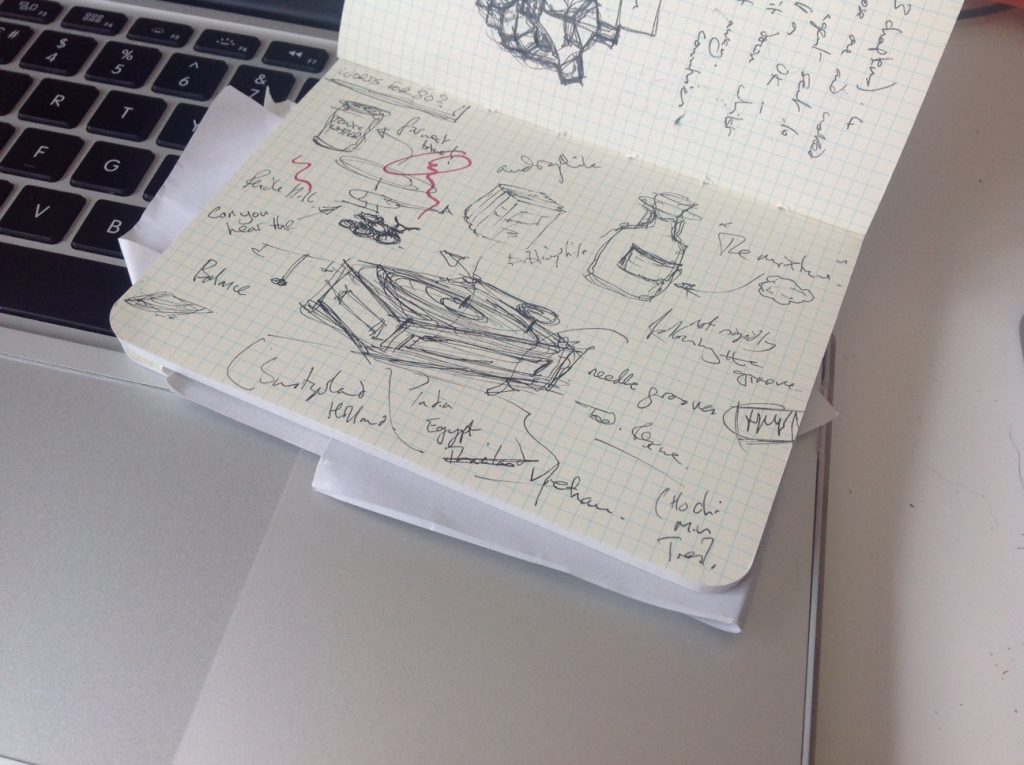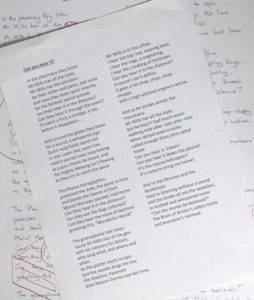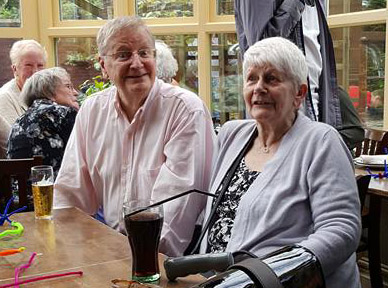My father-in-law turned 80 last week so my wife organised a party at award winning local pub; The Baum in Rochdale.
A few days before the event the question of maybe producing a poem to be read at the event was raised and of course I was delighted to offer to write something for the occasion. It is at times like this, when the poet has to produce something suited to an occasion and on a short time-scale, that all the techniques I pass on through workshops really come into their own.
First of all there are a few decisions to be taken which will help shape the final work e.g.;
- What is the function of the piece (this one was mainly to amuse or entertain)
- What is the target audience
- What style of poem are we aiming for
In this case I knew that the poem needed to entertain, to make people smile or laugh and at the same time perhaps tell them something new about the subject. For an 80th birthday the subject had to be the octagenarian himself. Even with someone you know there will be interesting and amusing things you don’t know about them that might well make very useful content for the poem (adventures, misadventures, specialist skills or knowledge etc.) so it is well worth talking to others to research your subject.

The initial ideas – words and images
Using the idea generating techniques I frequently promote I initially jotted ideas into my notebook both in words and visual forms. In this case I knew the subject was well-travelled and having found out some of the places he had visited I did some on-line research so that I could include relevant details in the poem. Ideas from the research were added to the initial notes.

The finished poem, “Can you hear it?”
At the start of the process I often have little idea as to the eventual form of the finished poem, I start with ideas and words and as lines start to form then the rhythm of the piece gradually establishes itself. For an amusing piece I find that rhyme can be quite useful and once I have a set of rough verses I will spend some time considering some rhymes and the patterns they might form. I never treat rhyme as a strict rule and if for example the second and forth lines of the verses have rhyming words to finish them that won’t stop me including a verse (or more) without the rhymes or with a completely different pattern.
Once I’ve reached the stage of a fairly complete poem I will read it out loud to see how it sounds and how it can be improved. After 2 or 3 edits I will, if possible, share the work with someone else to get feedback and help to further refine it. In this case my wife, Maggie, provided valuable input to the development process. There comes a point where I’ll decide that the poem is complete, it has usually migrated to the word processor by that stage and I will save a “final” version and often print it. Of course after that whenever I look closely at the poem and read it a few more times I often make further changes; About then the poem acquires a title, this one became “can you hear it?”. I’m not sure if a poem is ever fully completed.
The poem itself may appear on this blog in due course but here are a few lines with references to John’s adventures through the years:
“The mighty Mekong isn’t flowing / as they try to catch the word”
“and beside the Seinne in Paris / Marcel Marceau paused; mid-mime”
“And as he strides across the mountains / Mr. Mills has all they style, /but he hasn’t had much water / walking mile after mile after mile.”
The acid test of course is the reaction from the chosen audience. Did they get it, did they enjoy it, did they smile, did they laugh in the right places, did they applaud naturally and did they do that terribly British thing of coming over quietly afterwards to say “Good poem, mate!”? Did the person you had written about appreciate and enjoy it?

John and Eileen
This time the answer was yes to all of the above so justifying my confidence in the creative processes and to some extent my ability to write to suit the purpose.
